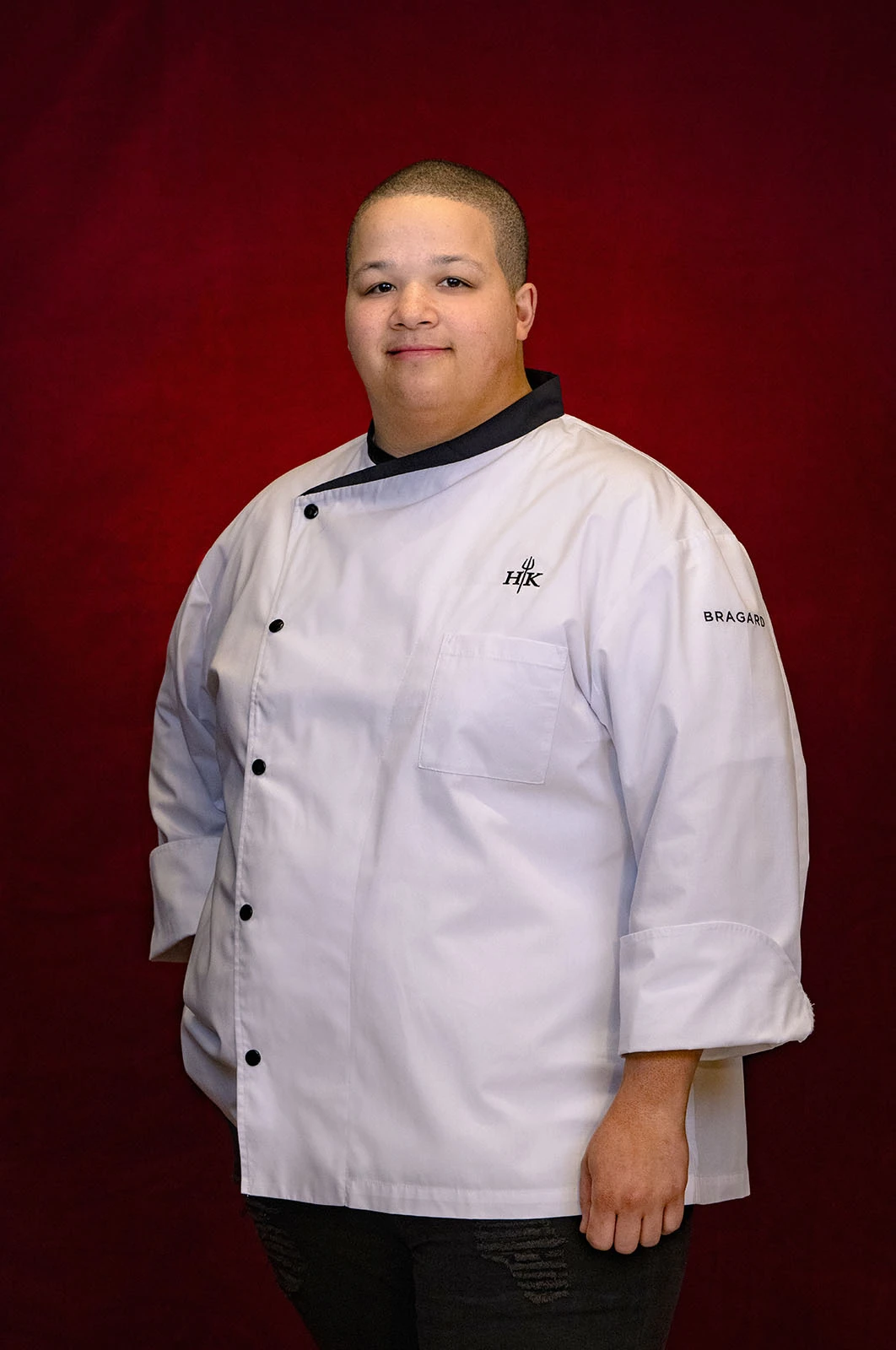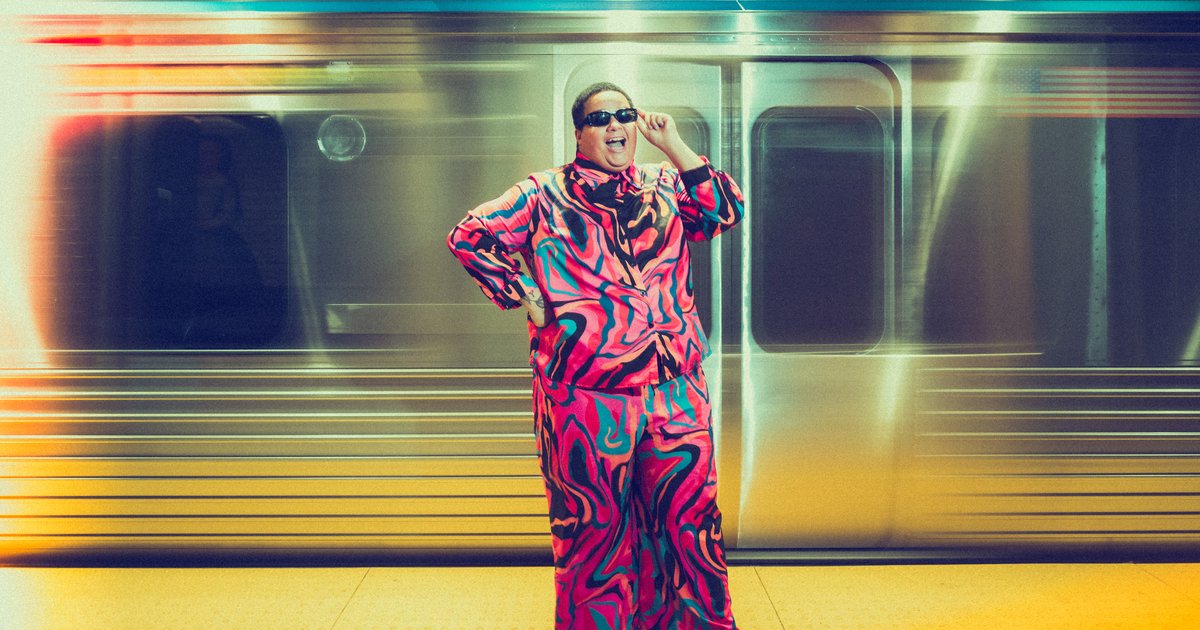Kyle From Hell's Kitchen: Gender Reveal & More!
Is the culinary world ready for a conversation that transcends the simmering pots and searing pans? The seemingly simple question of "Kyle from Hell's Kitchen's gender" has ignited a surprisingly complex discussion, revealing layers of societal assumptions, perceptions, and the evolving landscape of identity within the competitive environment of reality television.
The query, often uttered in hushed tones or rapidly typed into search engines, stems from a curiosity that's as old as the program itself. Hell's Kitchen, with its high-pressure environment, intense competition, and the larger-than-life persona of Gordon Ramsay, has always been a magnet for speculation. Contestants are thrust into a pressure cooker, not just of culinary demands, but also of personal scrutiny. Their every move, mannerism, and interaction becomes fodder for observation and discussion. While the show's format is primarily focused on the technical aspects of cooking, the human drama, the alliances, the rivalries, and the identities of the chefs are inextricably intertwined with the viewing experience. The ambiguity surrounding a contestant's gender, or any perceived deviation from established norms, tends to amplify this interest, adding another layer to the already complex narrative.
| Attribute | Details |
|---|---|
| Name | Kyle (Specific details, if available, such as last name, should be included here. If multiple "Kyles" have appeared, specify which one.) |
| Gender Identity | (Insert information here. This is the crux of the article. This section must be carefully and sensitively written. If the information is publicly available, state it clearly. If not, acknowledge the lack of definitive information and discuss the broader implications of the question.) |
| Pronouns | (If known and publicly available, list pronouns. If not, state this, and explain the importance of respecting individual preferences in pronoun usage.) |
| Birth Date (if available) | (Insert birthdate or age. If not publicly available, state this.) |
| Place of Birth (if available) | (Insert birthplace, if known.) |
| Education | (List any culinary school or relevant educational background, if publicly known.) |
| Career History | (Detail the chef's career progression, including any restaurants worked at, positions held, and notable accomplishments. This should encompass pre-Hell's Kitchen experience and post-show endeavors.) |
| Hell's Kitchen Season | (Specify which season of Hell's Kitchen the chef appeared on.) |
| Placement in Hell's Kitchen | (Detail how far the chef progressed in the competition, e.g., eliminated in week 4, runner-up, winner.) |
| Culinary Specialization | (Describe the chef's preferred cuisine or style of cooking.) |
| Awards and Recognition (if applicable) | (List any awards, accolades, or public recognition received.) |
| Social Media Presence (if applicable) | (Include links to any active social media profiles, if available.) |
| Reference Website | (Include a link to a reputable source, such as a contestant profile on the Hell's Kitchen website (if available), a culinary database, or a verified news article. Examples: IMDB (if applicable), a professional chef directory, a reliable news source.) Link to Website |
The very act of asking about someone's gender, in the context of a televised competition, touches upon several sensitive areas. It raises questions about privacy, the right to self-identification, and the pressure to conform to societal expectations. Reality television often thrives on exploiting personal narratives, and the ambiguity around a contestant's gender can easily become a source of speculation and, at times, unwanted attention. While the show is designed for entertainment, the line between public performance and private life can blur, leading to potential discomfort and even harm for the participants.
The gender binary, a framework that categorizes individuals into male and female, has been increasingly challenged in recent years. More people are openly identifying as non-binary, genderqueer, or other identities that fall outside this traditional structure. This shift in understanding necessitates greater sensitivity in how we discuss gender, especially in public forums. The language we use, the assumptions we make, and the questions we ask all contribute to the environment surrounding these conversations. For example, instead of assuming someones gender based on appearance, it is far more respectful and informative to use the correct pronouns. In the absence of explicitly stated preferences, defaulting to the use of they/them pronouns is a considerate choice.
Hells Kitchen, like many reality shows, is a microcosm of society. The show reflects, and often amplifies, the social dynamics that exist in the real world. The dynamics of power, competition, and interpersonal relationships are all on display. When a contestant's gender identity becomes a topic of discussion, its often reflective of broader societal attitudes toward gender and sexuality. These conversations can be used to showcase how much society has progressed when it comes to understanding and accepting gender diversity.
The question of gender in the context of professional kitchens is also relevant. The culinary world has historically been male-dominated, and women and gender-nonconforming individuals often face unique challenges in the industry. The demanding nature of the work, the long hours, and the aggressive environment can create obstacles for those who dont fit the traditional mold. Therefore, the presence of gender-diverse contestants on shows like Hells Kitchen can highlight the need for greater inclusivity and equal opportunities in the culinary field. It challenges viewers to reconsider their assumptions about who belongs in the kitchen and who can succeed in the industry.
The media's portrayal of gender also plays a significant role in shaping public perception. How television programs present gender identity influences how viewers understand and interpret the world around them. Positive and respectful representations of gender-diverse individuals can help to combat prejudice, promote understanding, and foster acceptance. Conversely, stereotypical depictions or the perpetuation of misinformation can perpetuate harmful biases and contribute to a climate of discrimination.
The debate around the gender of contestants on shows like Hell's Kitchen also intersects with larger discussions about identity, representation, and visibility. The more diverse the representation on television, the more likely viewers are to see themselves reflected in the media. This sense of belonging and affirmation can be incredibly powerful, particularly for marginalized groups. However, visibility also comes with a degree of risk. Public exposure can lead to scrutiny, criticism, and even online harassment. Contestants may feel pressured to conform to certain expectations or to defend their identities against negative comments.
Beyond the specifics of any particular contestant, the broader conversation surrounding gender in the culinary world is vital. Professional kitchens are often high-pressure environments, and issues of sexism, homophobia, and transphobia have, historically, presented significant challenges. Examining these power dynamics, and promoting respectful and inclusive environments, is crucial for the health and progress of the industry.
The public's response to contestants, and the ways in which the show itself addresses the question of gender, also contribute to the broader cultural landscape. The language used in the program, the reactions of the judges and other contestants, and the overall narrative that is created can influence how viewers perceive gender identity. This can serve as an opportunity for education, awareness, and positive change.
The popularity of Hell's Kitchen, and other cooking competition shows, gives them a platform to influence the public perception. The way in which they handle gender, and other issues of identity, can set an example for other media outlets and help to shift the conversation towards greater inclusivity and respect. By embracing diversity and promoting understanding, these programs can play a significant role in creating a more equitable and accepting society.
Ultimately, the question of "Kyle from Hell's Kitchen's gender" is less about a specific individual and more about the broader societal forces at play. Its a reflection of our curiosity, our biases, our evolving understanding of identity, and the complex relationship between reality television and real life. It serves as a reminder to be mindful of the language we use, the assumptions we make, and the impact our words and actions can have on others. It also highlights the importance of creating safe and inclusive environments where individuals can express themselves authentically and without fear of judgment or discrimination. The conversation itself, regardless of any definitive answers, offers an opportunity for learning, empathy, and a deeper understanding of the human experience.


